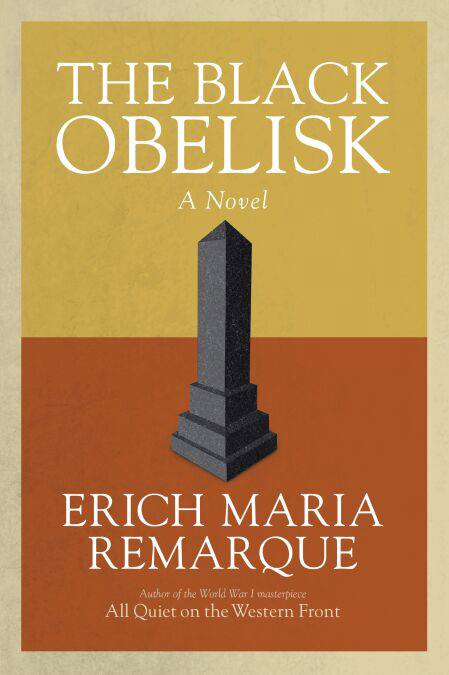
- Afhalen na 1 uur in een winkel met voorraad
- Gratis thuislevering in België vanaf € 30
- Ruim aanbod met 7 miljoen producten
- Afhalen na 1 uur in een winkel met voorraad
- Gratis thuislevering in België vanaf € 30
- Ruim aanbod met 7 miljoen producten
Zoeken
€ 15,56
+ 15 punten
Uitvoering
Omschrijving
From the author of the masterpiece All Quiet on the Western Front, The Black Obelisk is a classic novel of the troubling aftermath of World War I in Germany.
A hardened young veteran from the First World War, Ludwig now works for a monument company, selling stone markers to the survivors of deceased loved ones. Though ambivalent about his job, he suspects there’s more to life than earning a living off other people’s misfortunes.
A self-professed poet, Ludwig soon senses a growing change in his fatherland, a brutality brought upon it by inflation. When he falls in love with the beautiful but troubled Isabelle, Ludwig hopes he has found a soul who will offer him salvation—who will free him from his obsession to find meaning in a war-torn world. But there comes a time in every man’s life when he must choose to live—despite the prevailing thread of history horrifically repeating itself.
“The world has a great writer in Erich Maria Remarque. He is a craftsman of unquestionably first rank, a man who can bend language to his will. Whether he writes of men or of inanimate nature, his touch is sensitive, firm, and sure.”—The New York Times Book Review
A hardened young veteran from the First World War, Ludwig now works for a monument company, selling stone markers to the survivors of deceased loved ones. Though ambivalent about his job, he suspects there’s more to life than earning a living off other people’s misfortunes.
A self-professed poet, Ludwig soon senses a growing change in his fatherland, a brutality brought upon it by inflation. When he falls in love with the beautiful but troubled Isabelle, Ludwig hopes he has found a soul who will offer him salvation—who will free him from his obsession to find meaning in a war-torn world. But there comes a time in every man’s life when he must choose to live—despite the prevailing thread of history horrifically repeating itself.
“The world has a great writer in Erich Maria Remarque. He is a craftsman of unquestionably first rank, a man who can bend language to his will. Whether he writes of men or of inanimate nature, his touch is sensitive, firm, and sure.”—The New York Times Book Review
Specificaties
Betrokkenen
- Auteur(s):
- Vertaler(s):
- Uitgeverij:
Inhoud
- Aantal bladzijden:
- 448
- Taal:
- Engels
Eigenschappen
- Productcode (EAN):
- 9780812985559
- Verschijningsdatum:
- 2/12/2013
- Uitvoering:
- E-book
- Beveiligd met:
- Adobe DRM
- Formaat:
- ePub

Alleen bij Standaard Boekhandel
+ 15 punten op je klantenkaart van Standaard Boekhandel
Beoordelingen
We publiceren alleen reviews die voldoen aan de voorwaarden voor reviews. Bekijk onze voorwaarden voor reviews.











